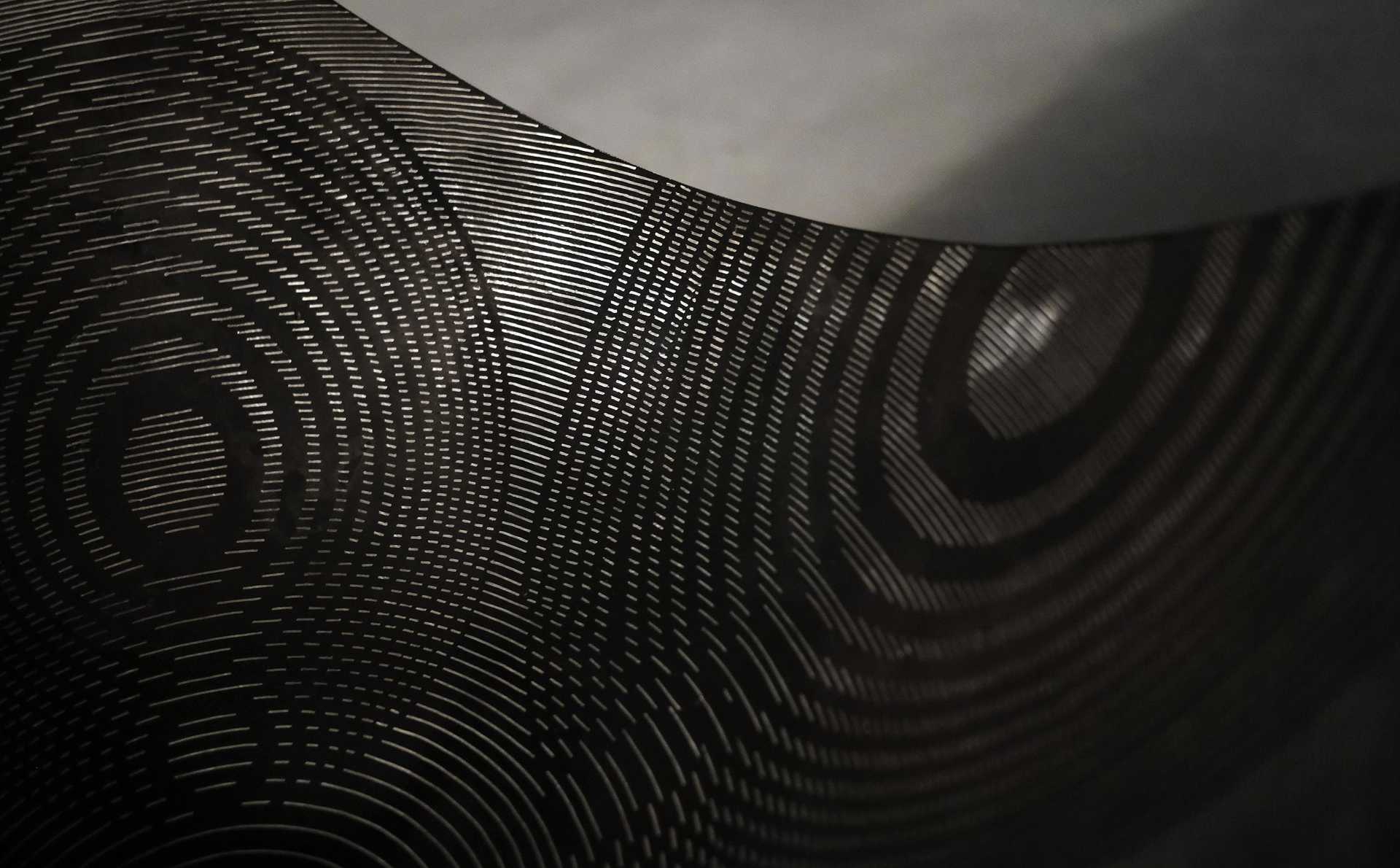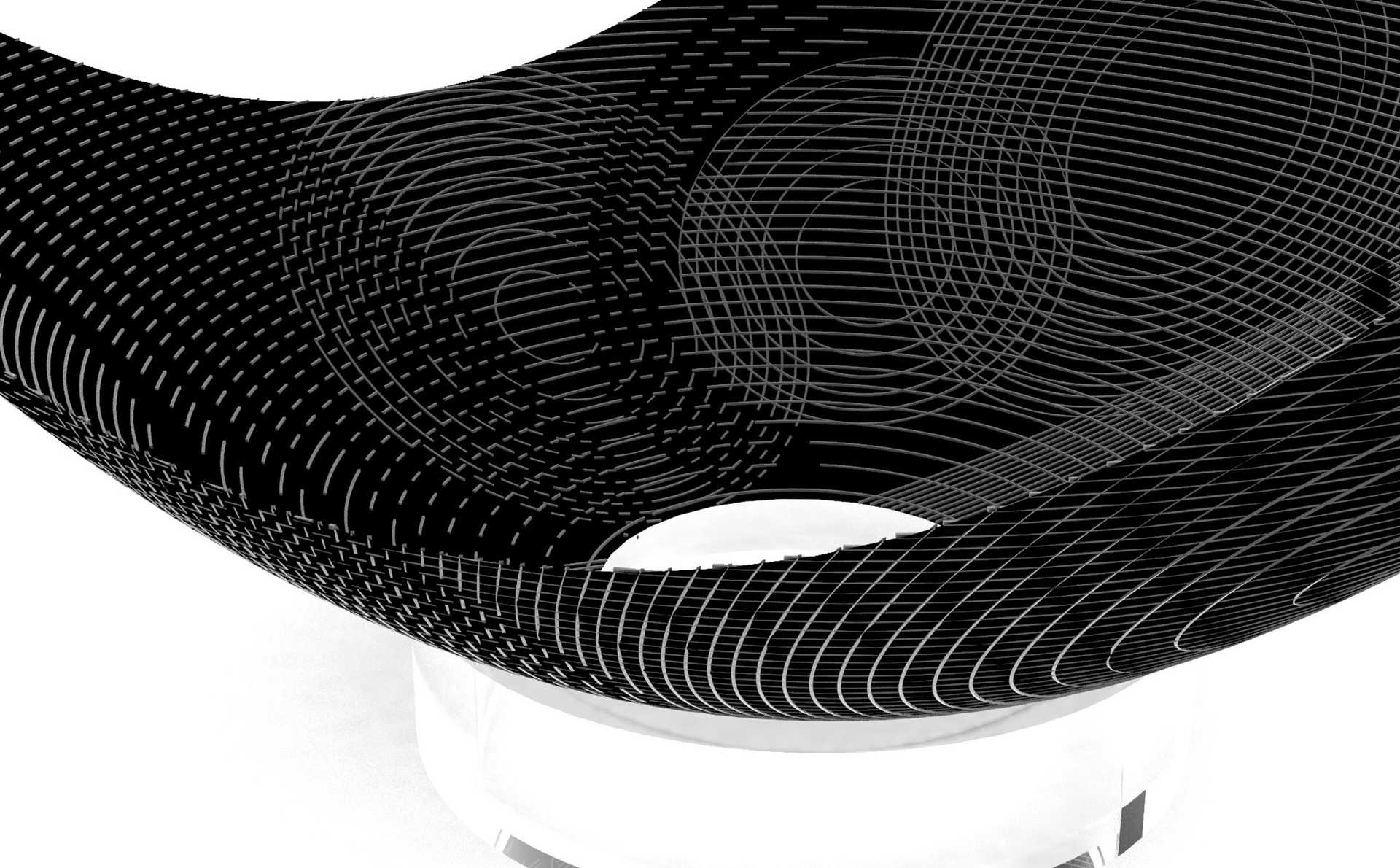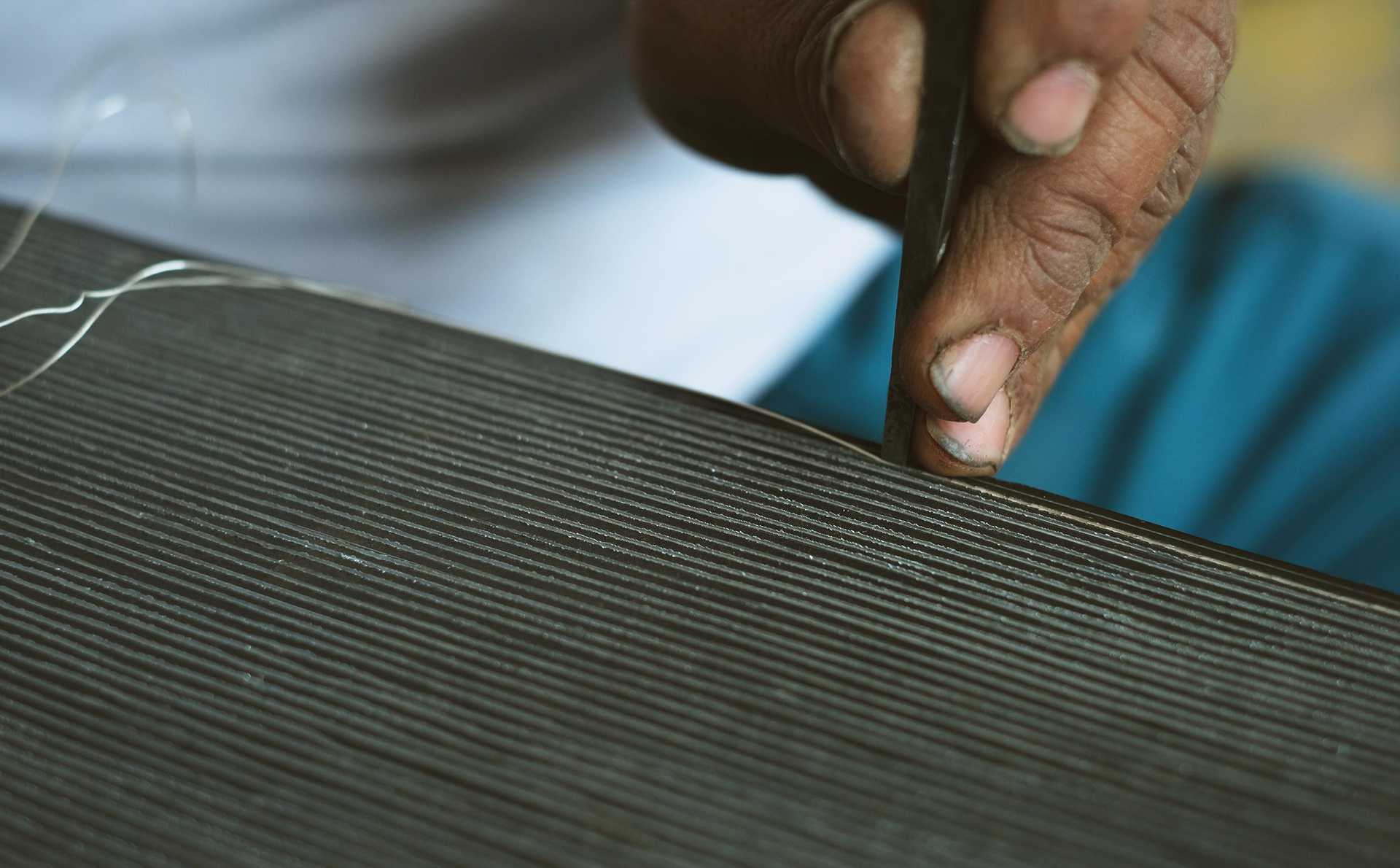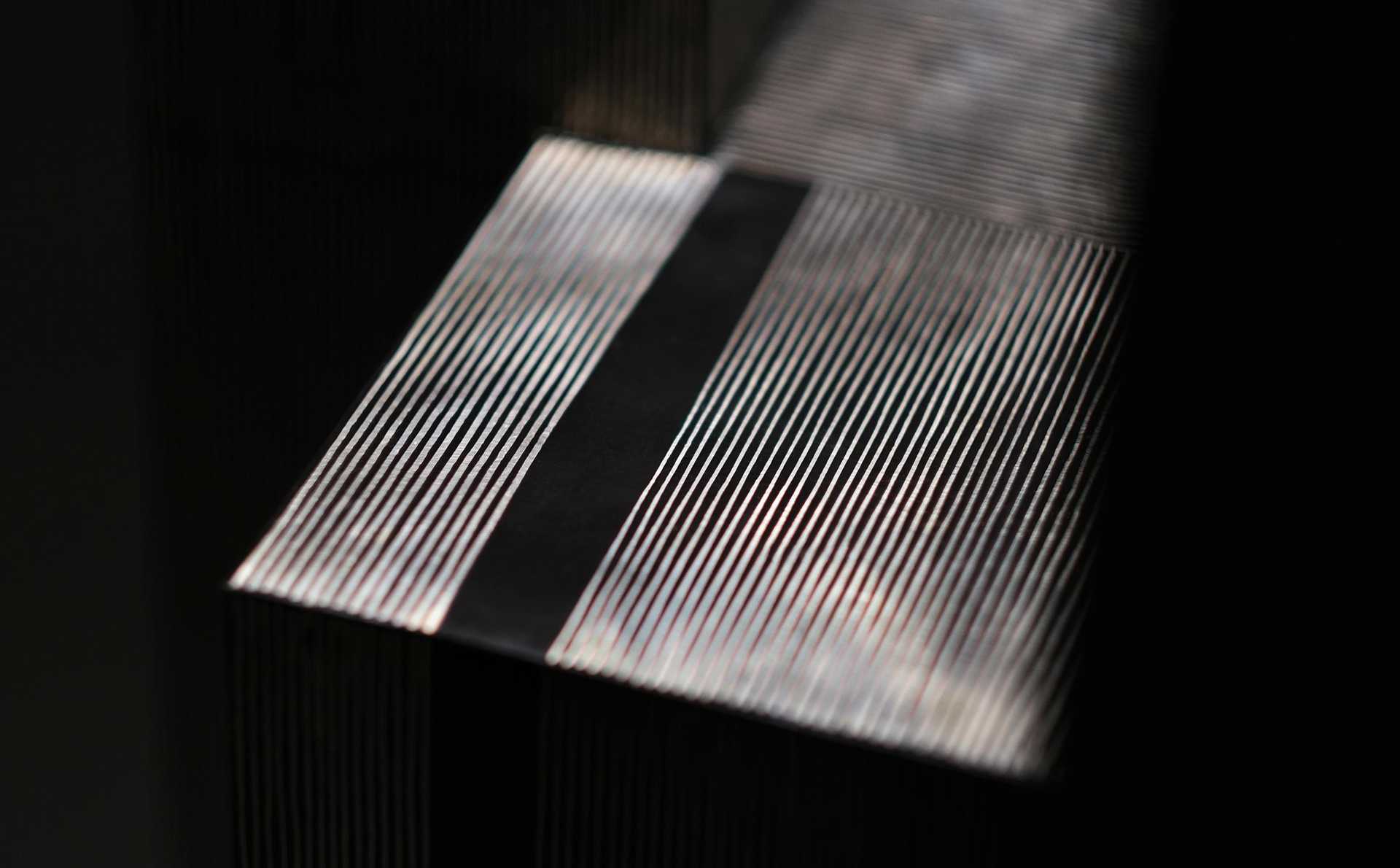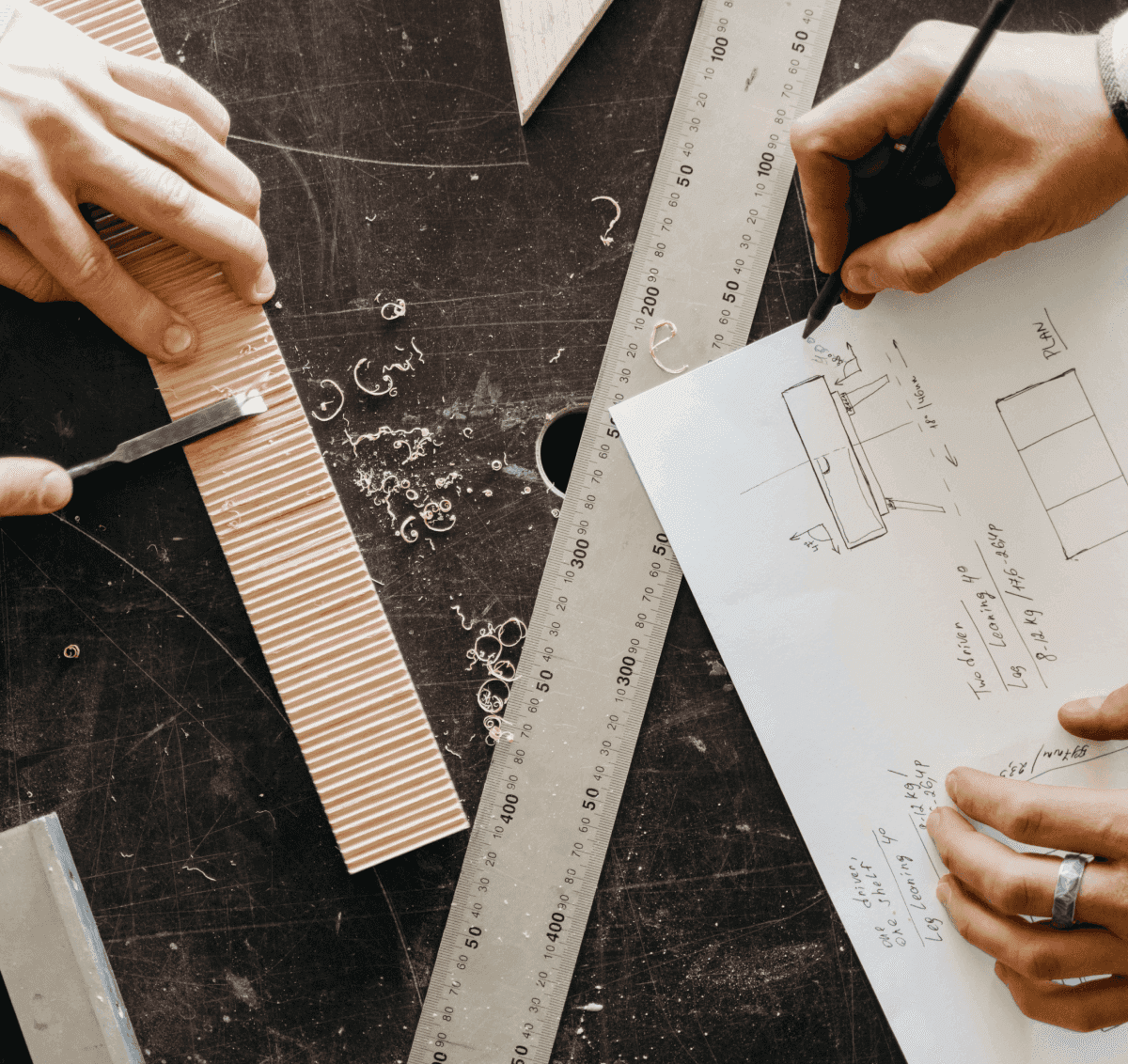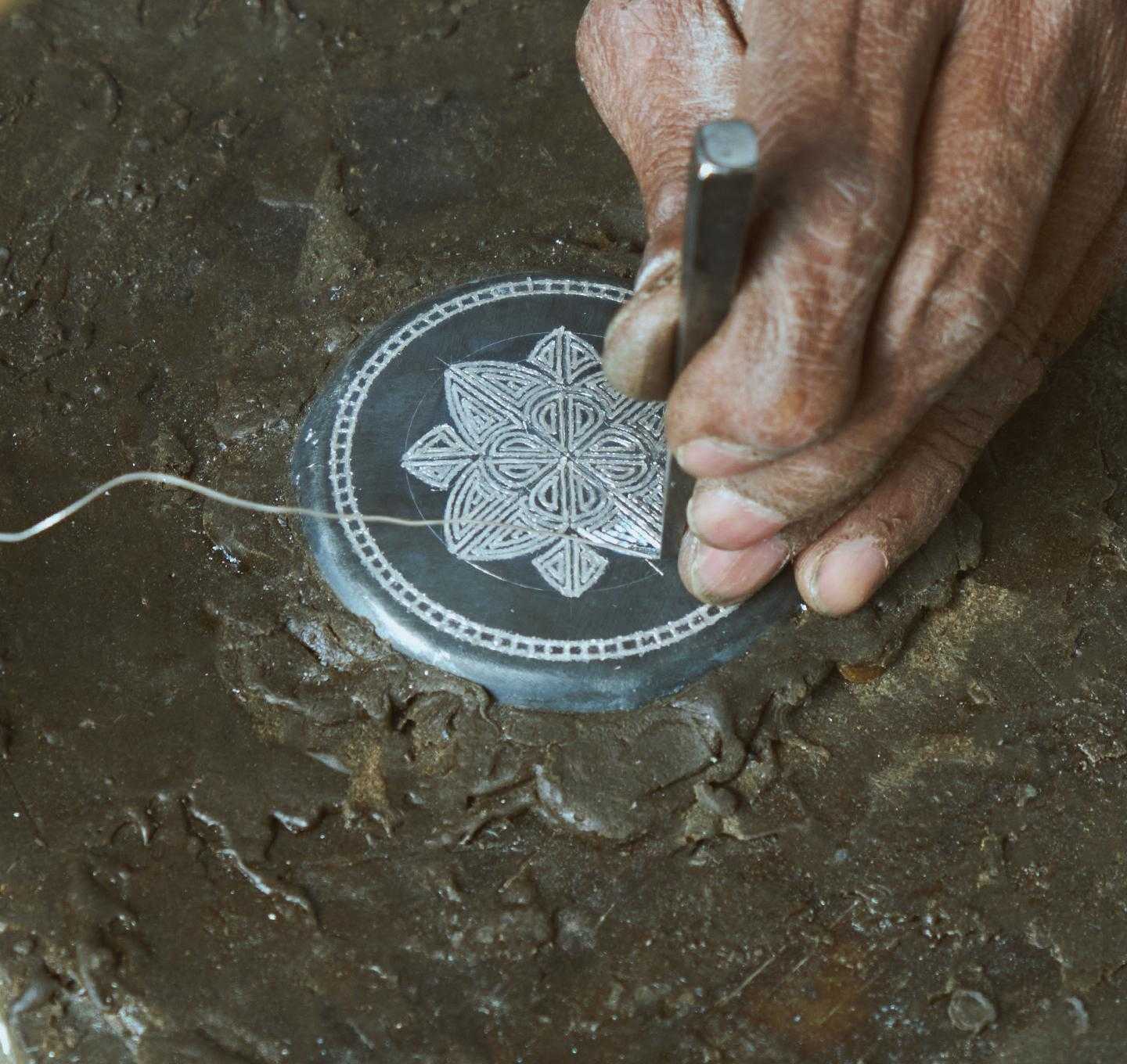Gunnar Rönsch & Stephen K Molloy
Berlin, Germany
Gunnar and Stephen are driven by the vision to create furniture and household items inspired by the mathematics of nature. The two met while studying architecture at the Universität der Künste in Berlin, and soon afterwards they pursued their fascination with the mathematics of nature through architectural work in London, Berlin and Los Angeles. In 2011, they began producing furniture alongside their architectural practice. The starting point for all their designs is the observance and expression of the patterns and shapes that occur in the natural world. More than anything else, Rönsch and Molloy love to experiment with new ways of using their old favourite materials and playing with patterns and colours.
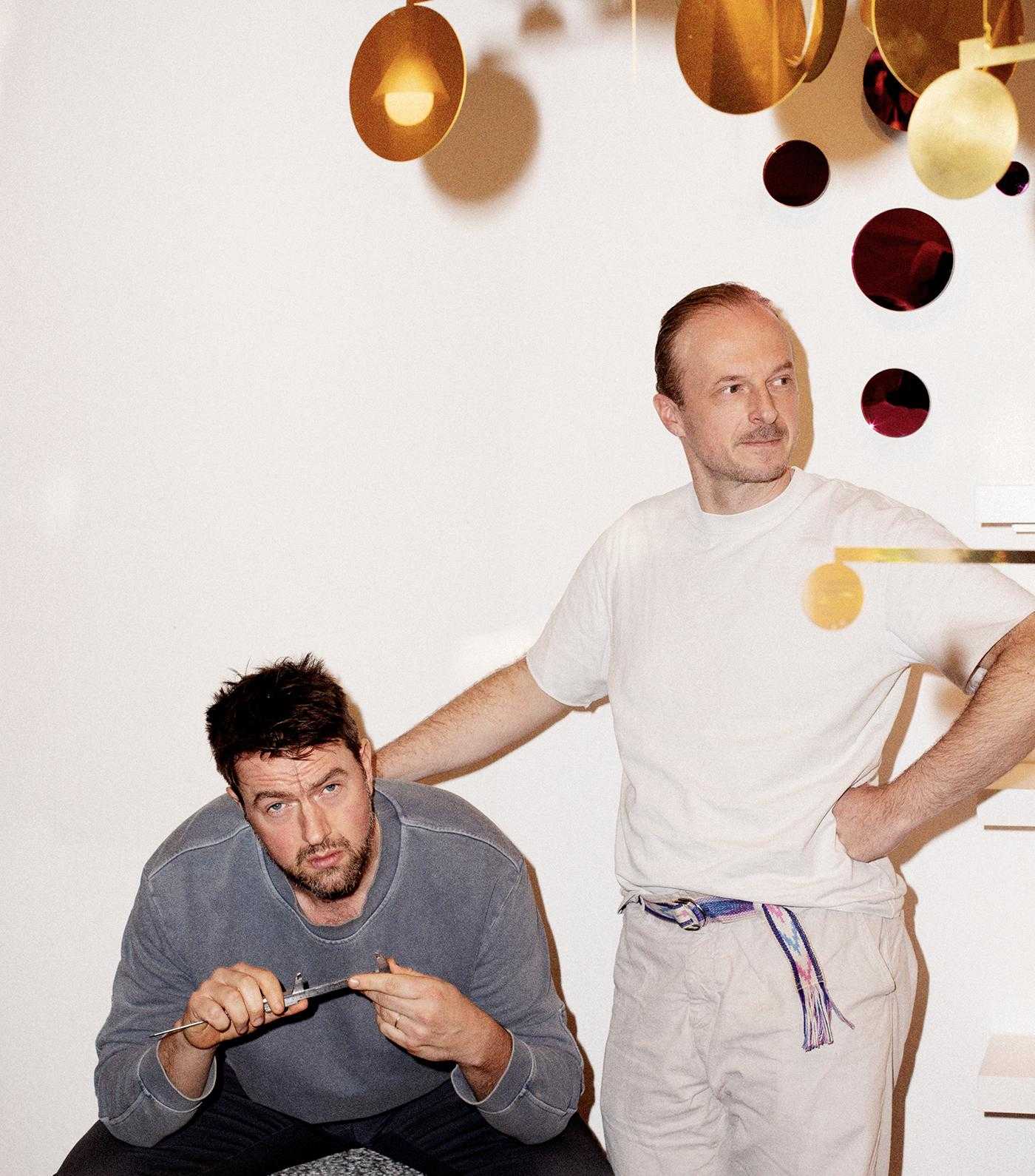
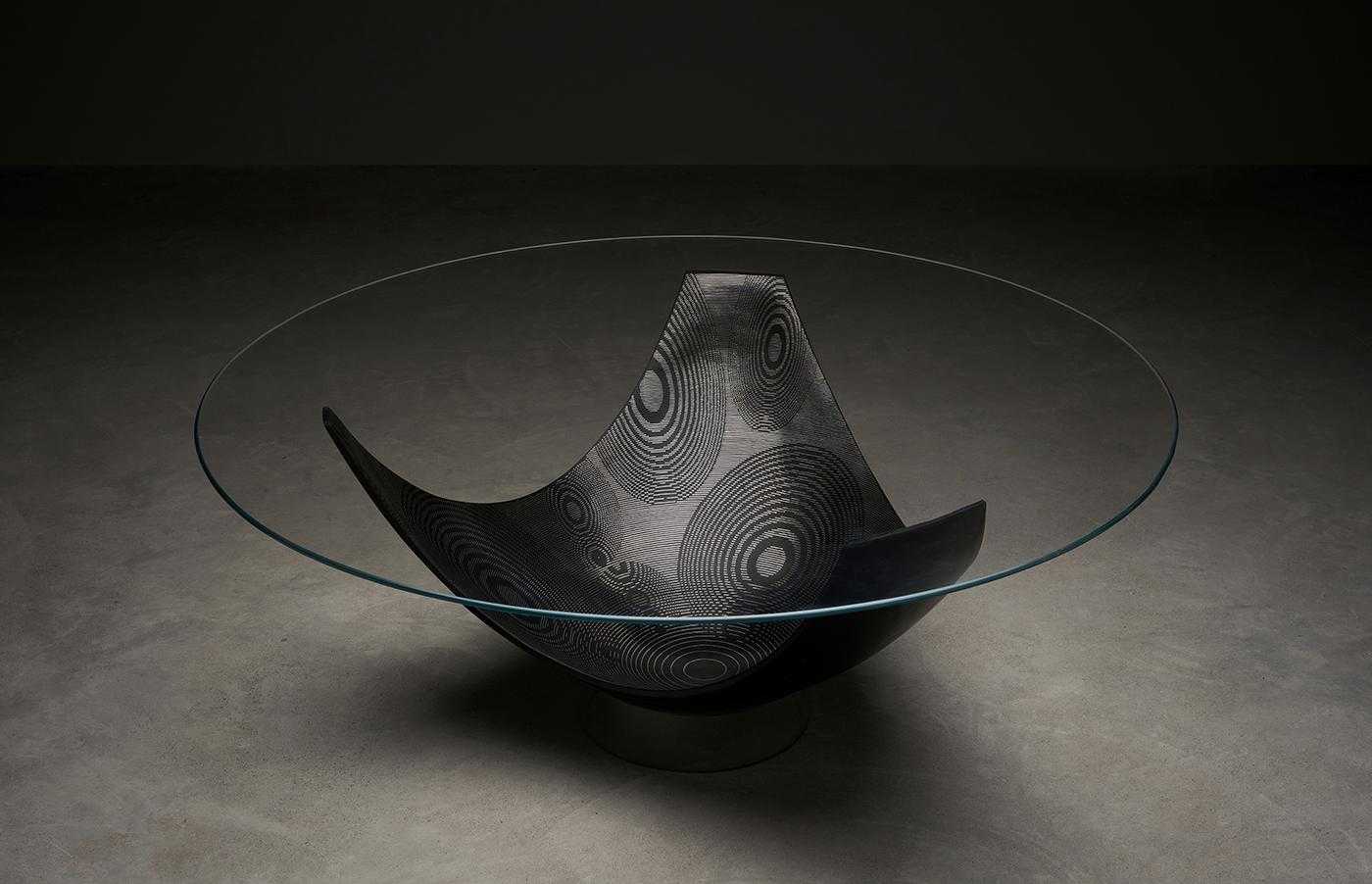
“The inspiration for this product came from observing a droplet fall on the surface of still waters. The irregular parabolic form is our interpretation of the splash, while the inlay is a geometric abstraction of the ripples.”

“Creating this table presented a significant challenge in communicating the complex three-dimensional shape of the form-active shell to the craftsmen. It required a fusion of cutting-edge 3D printing with age-old techniques, resulting in a piece that seamlessly bridges the past and the future, truly encapsulating this unique moment in history.�”
“In this lamp, we articulate our fascination for the expressive dazzle patterns used in early camouflage during World War I and for mid-century graphic and perpendicular art.”
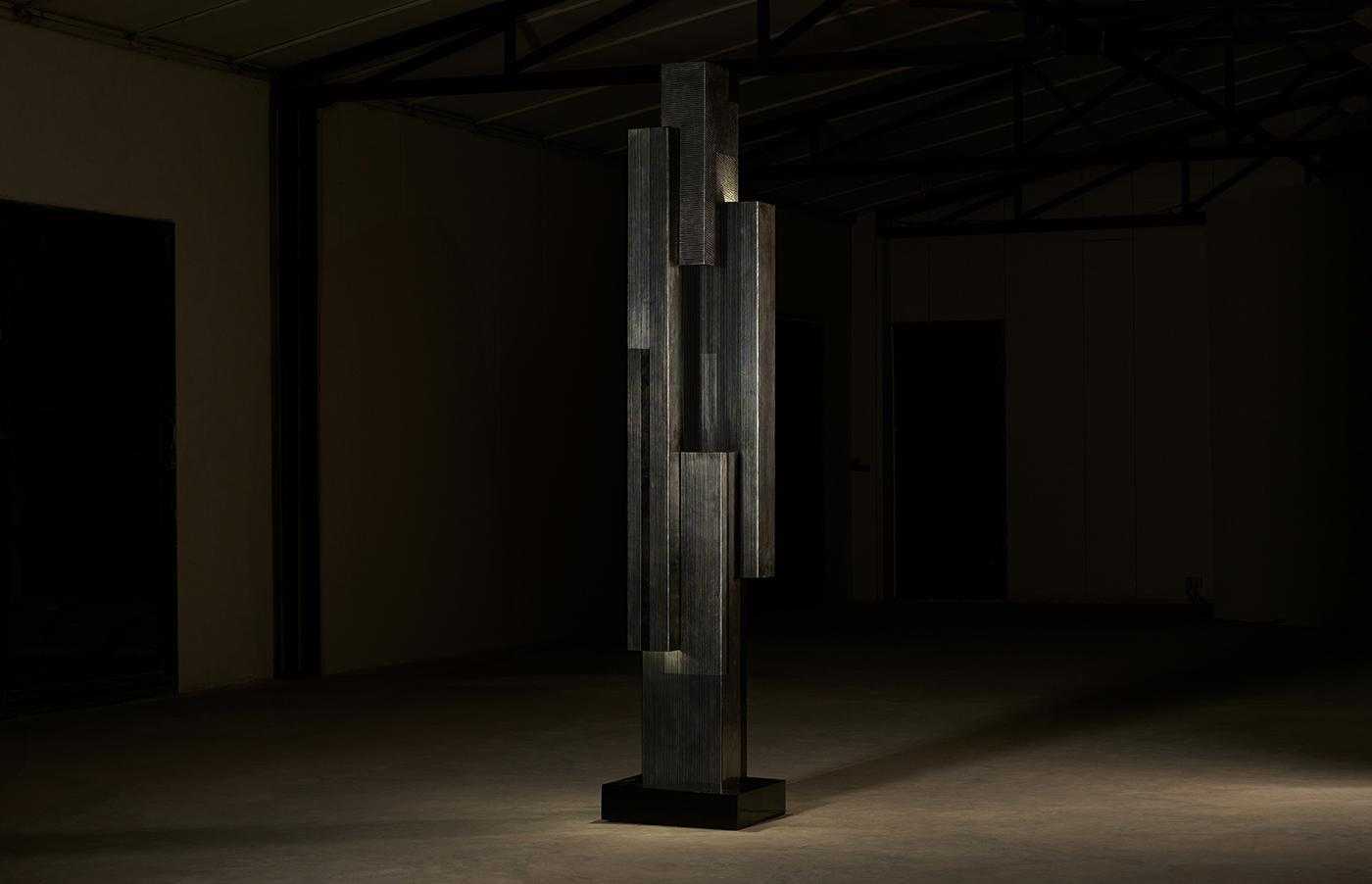
“The breakthrough in crafting this piece occurred when we devised a minimalist, geometric, and repetitive pattern, done by hand. Ironically, this was a task that automation could not have done well, because the result would have been too simple. However, when executed by human hands, each line bore subtle imperfections, showcasing the human touch and a devotion to perfecting each stroke. This lamp beautifully demonstrates that happiness lies in the pursuit of repetition.”

